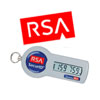
Comodo, DigiNotar Attacks Expose Crumbling Foundation of CA System
There are a lot of things in the security world that are broken and there isn’t room to list them all, even on the Internet. But if the events of the last few days have shown us anything, it’s that the certificate authority infrastructure is beyond broken and there’s no quick fix looming on the horizon. In fact, the way things look now, there may not be any practical solution to the problem at all.









